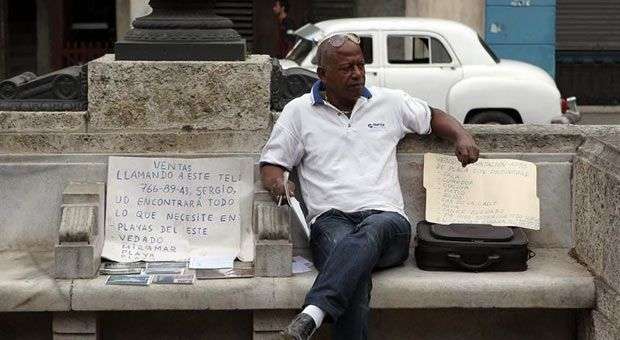Now Cuban private realtors will no longer be illegal, will be renamed estate agents and enter the glorious army of self-employed, non-state sector, or whatever you call it throughout the island … What it was previously done surreptitiously and mysteriously, is now legal and if you want so loudly proclaim “here, the house of your dreams is here …”
Cuba’s Official Gazette published the approval of this and other 17 activities, for a total of 201 trades authorized for private initiative. As with previous tradesthey just legalized something that had been here for a while, with its own rules and great returns.
In particular real estate agent’s work had gained traction after liberalization almost two years of the sale of homes in Cuba. And how could it be different, when a broker usually receives 10 percent of the transaction amount, in some cases figures in the thousands of dollars. The service includes finding homes, bureaucratic procedures and the occasional bribe, the dreaded “fines”, inevitable in this highly precarious sector in Cuba.
To get a timid idea of what may prove to be a barter of homes in Cuba you could watch what Juan Carlos Tabio masterfully filmed 30 years ago in “The Swap”: if this was so in the time of CAME, imagine how it was after socialism in Europe eastern fell.
In recent years proliferated also the Web with classified swap and purchases of houses, something that once was found only in the pages of the journal Opina, social facilitation programs of the provincial radio stations or on Saturdays in Prado avenue corner to Colon Street where realtors used to gather.
But this extension also legalizes the wholesaler of agricultural products and services and telecommunications equipment agent. They also authorized the trades of postal agent (postman), smelter, property manager for rental homes and repairing measuring instruments, among others, car bodyworks, processor-seller of soap, shoe polish, ink, marble items, and service construction, repair and maintenance of buildings.
Now they are part of the 436,000 people estimated be self-employed in Cuba. Many of them work in cooperatives resulting from former state enterprises, mainly construction, transport, commerce, cuisine and service for recycling and recovery of raw materials, almost all of damn that were inefficient.
In addition, new provisions of the Ministry of Labour and Social Security are more precise regarding the scope of some licenses to prevent “distortions” such as occurred with the activity of “dressmaker or tailor” which covered the sellers of clothes, footwear, cosmetics and other items brought from abroad. Now no one can sell anything imported, but just before it was forbidden and it still was done.
For now, Cuba in October granted new licenses for self-employment, as alternative employment for workers in the large reduction in the bloated state sector workforce. Bloated and underpaid, I would add …










